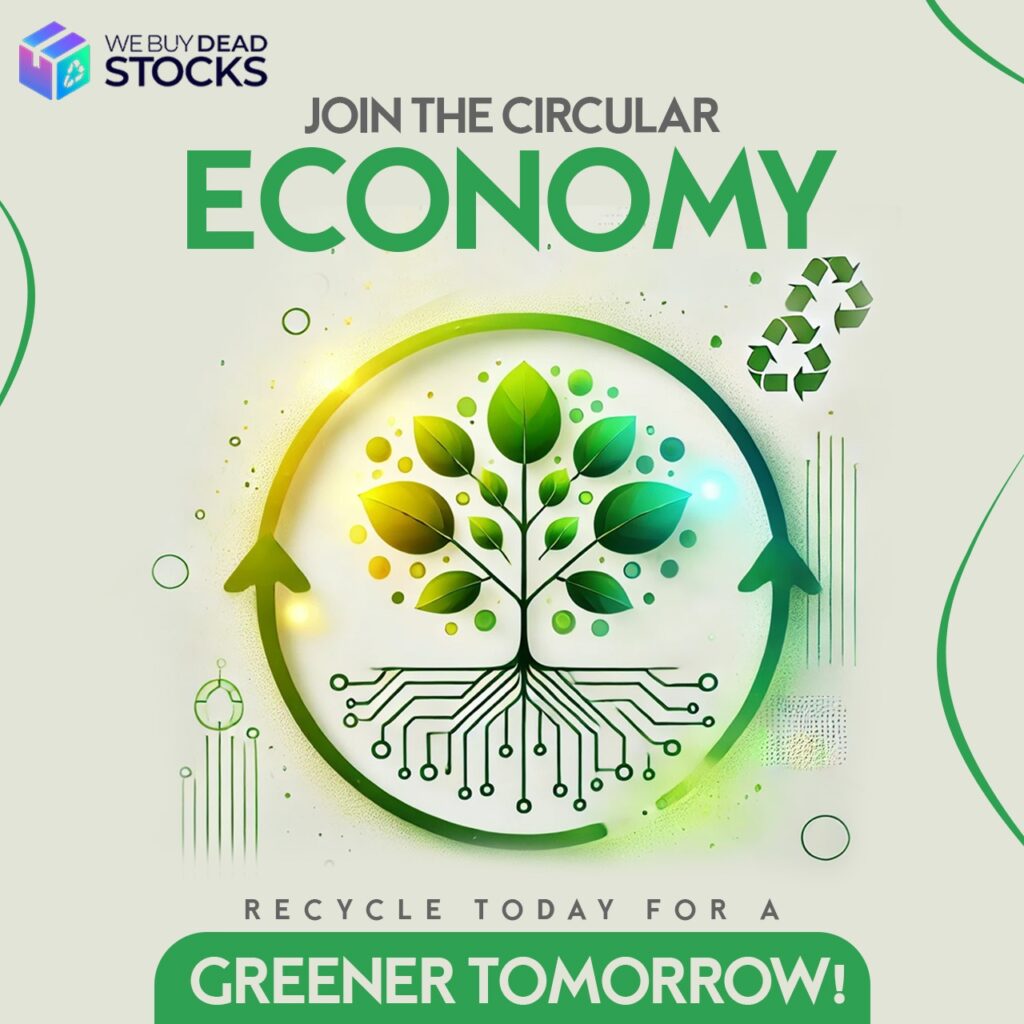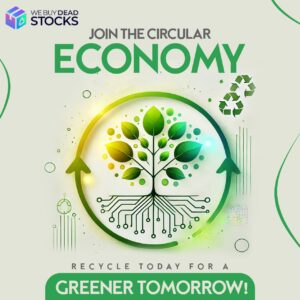In an era marked by environmental challenges, the call for sustainable living has never been more urgent. The concept of the circular economy presents a transformative solution to combat the environmental crisis and foster a “Greener Tomorrow.” By emphasizing recycling, reusing, and reducing waste, the circular economy aims to minimize environmental harm while maximizing resource efficiency.
Understanding the Circular Economy
The circular economy is an innovative economic system that shifts away from the traditional “take-make-dispose” model. Instead, it focuses on designing products and systems that prioritize resource recovery, durability, and environmental friendliness. Within this framework, materials are continuously cycled back into the economy, reducing dependency on finite resources.
Businesses such as “We Buy Dead Stocks” exemplify the principles of the circular economy. By acquiring unused or surplus products, these companies contribute to recycling and reducing waste, paving the way for a sustainable future. This aligns with the ultimate goal of creating a cleaner planet and ensuring resource availability for generations to come.
The Role of Recycling in Sustainability
Recycling lies at the heart of the circular economy. It not only helps reduce landfill waste but also cuts down on the extraction and processing of raw materials. According to a study by the Environmental Protection Agency (EPA), recycling reduces greenhouse gas emissions, conserves natural resources, and supports job creation in green industries.
Individuals and businesses can take part in the recycling revolution by:
- Sorting waste to ensure recyclable materials are not mixed with non-recyclables.
- Partnering with organizations that specialize in reusing or repurposing old items.
- Educating themselves and others about the benefits of a circular economy for a “Greener Tomorrow.”
The Power of Small Actions
Achieving a “Greener Tomorrow” doesn’t require monumental changes; even small, consistent actions can create a significant impact. Whether it’s adopting reusable bags, minimizing single-use plastics, or choosing eco-friendly products, every effort contributes to sustainability.
Businesses play a crucial role by implementing green policies. This includes reducing their carbon footprint, using renewable energy, and offering sustainable product lines. By adopting circular economy principles, companies not only help the environment but also gain a competitive edge by meeting the rising demand for eco-conscious products and services.
A Vision for the Future
The pursuit of a “Greener Tomorrow” is a collective effort that demands action from governments, corporations, and individuals alike. Policymakers must enact regulations to incentivize sustainable practices and penalize wasteful behaviors. Corporations need to embrace eco-friendly innovations in their operations. And as consumers, we hold the power to drive change by choosing sustainable options and supporting businesses aligned with the circular economy.By recycling today, we invest in a sustainable future. The transition to a circular economy promises a world where resources are preserved, ecosystems thrive, and communities prosper. Together, we can ensure that the vision of a “Greener Tomorrow” becomes a reality.
Conclusion
The journey toward a “Greener Tomorrow” begins with a single step: embracing the principles of the circular economy. By prioritizing recycling, reducing waste, and making conscious choices, we can collectively build a sustainable future. Companies like “We Buy Dead Stocks” demonstrate that sustainable practices are not only achievable but also beneficial for the planet and the economy. Let us all commit to this vision and take meaningful actions today for a cleaner, healthier tomorrow.





